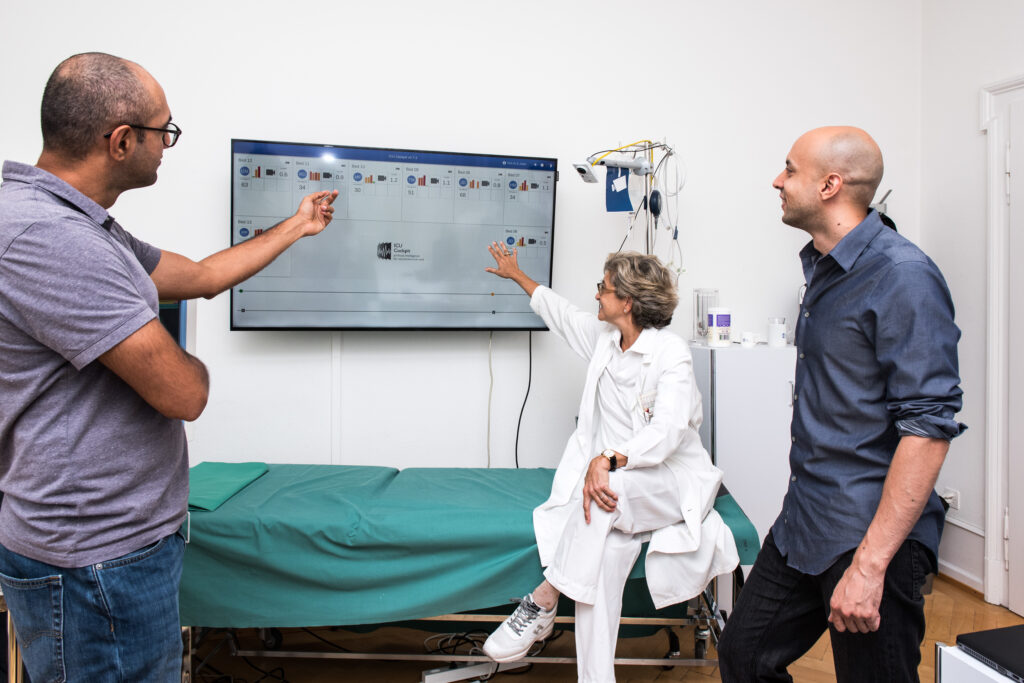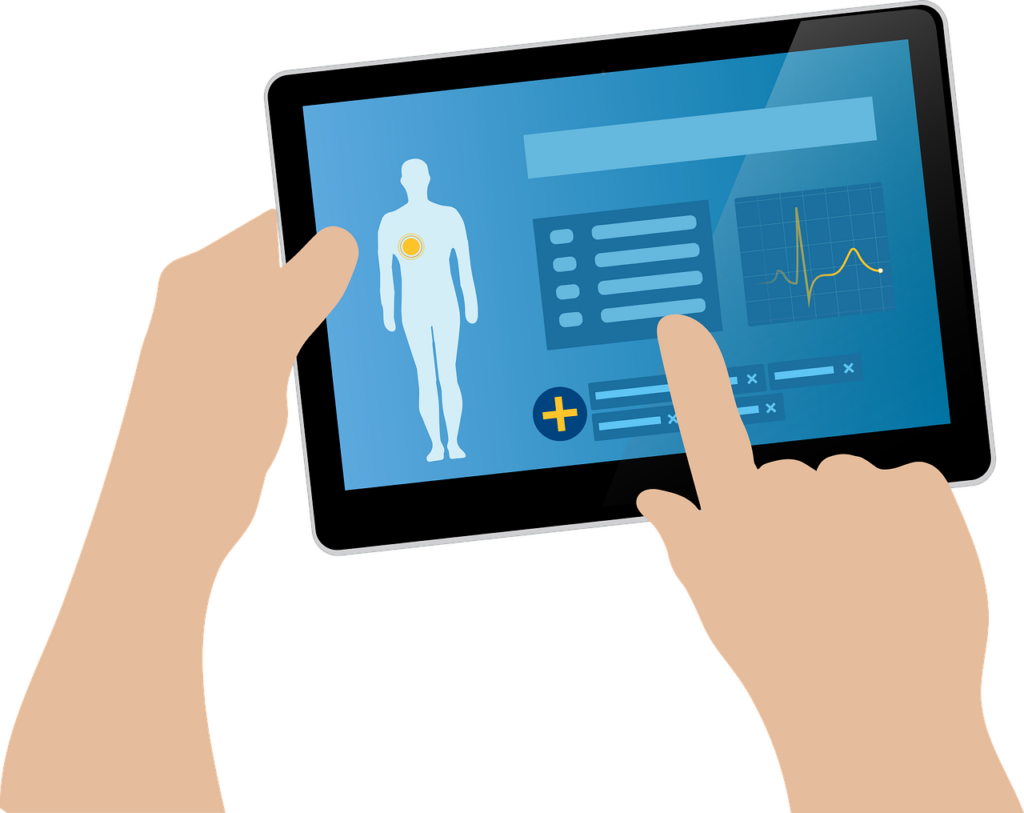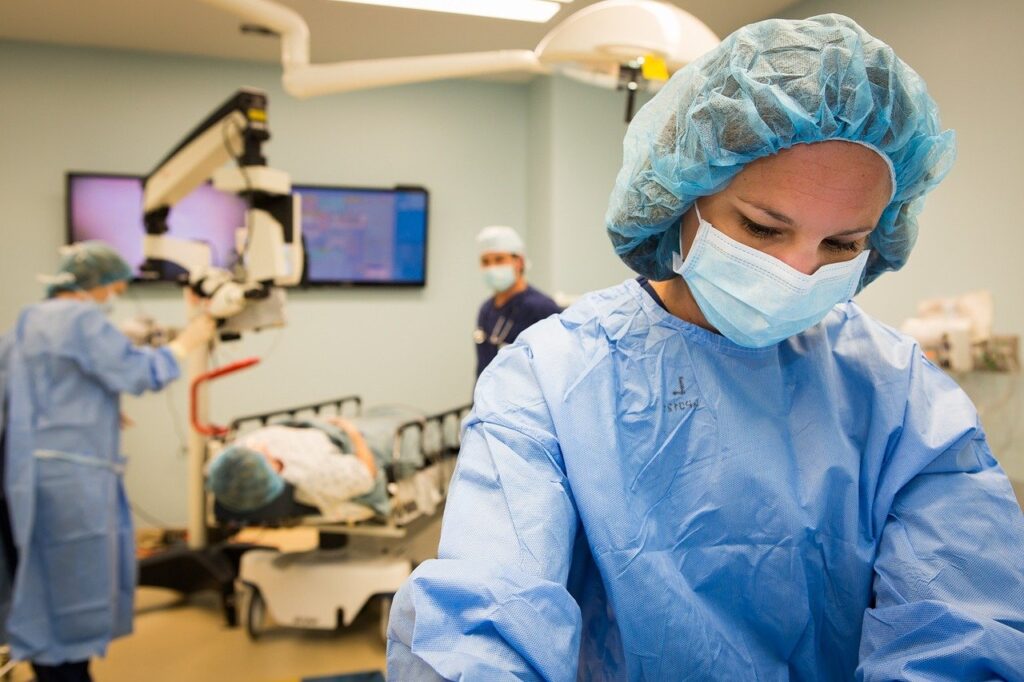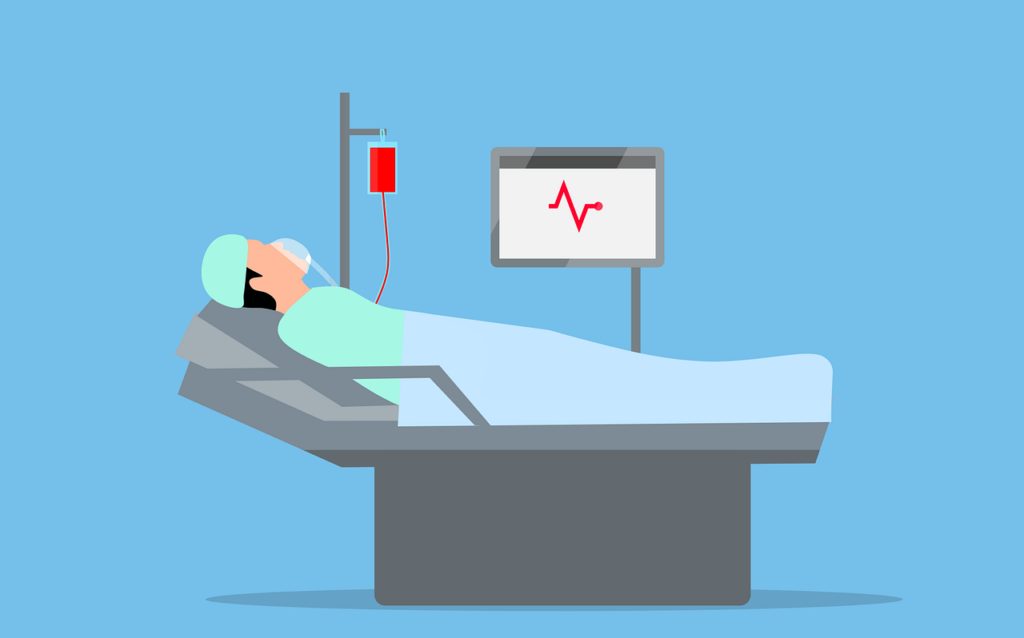
Using Data for Decision Making in Intensive Care
Digitalization in healthcare makes it possible to collect a pletora of biosignals from patients. The challenge arises in how to present such signals to physicians and caretakers so that they are supported in their decision making.
Emanuela Keller and her team have been developing a system for this, with the goal to improve care. They are now ready to make it available in clinical studies in daily clinical routine.
Project Name: ICU-Cockpit
Going from data overload to informed decisions
Intensive care units (ICU) cater to patients with severe or life-threatening illnesses and injuries, which require constant care, close supervision from life support equipment and medication. While the digitalization in this space can provide physicians and care-takers with valuable information from advanced biosensors, it can also lead to an information overload making it hard to prioritize the influx of information.
With integrated solutions that collect and bundle the signals over time, the physicians can be supported to take informed decisions. Such a solution has been developed over the last years within the ICU cockpit project. The project was initiated by Professor Emanuela Keller at the Neurosurgical Intensive Care Unit, University Hospital Zurich. Predictive algorithms have been developed in collaboration with researchers at the UZH, ETH and IBM Research Zurich. The ICU-Cockpit helps prevent complications during the care of a patient and as a result the entire health care system profits from such a system.

Building on the Knowledge of an interdisciplinary team
During this project experts from different fields, such as researchers, softwares developers, and clinicians, came together to work on the most effective solution to the issue at hand. The result is a “computer assisted decision support system” for clinicians. The system saves synchronized data and presents the results on a graphical user interface.
Importantly, the ICU-Cockpit helps to build up the structure to further process the information that is generated by the biosensors in a way that does not violate any data protection laws. One key challenge the developers faced was finding a healthy balance between protecting an individual’s data and still being able to generate enough meaningful data to do research on and to test an algorithm on.

For the benefit of other hospitals
While the first application of the ICU Cockpit was developed for the Neurosurgical Intensive Care Unit at the University Hospital of Zurich the developers are currently trying to extend the system such that it could be used in other intensive care units and other hospitals as well.
Even though the stimulus for this research project stems from research, the developers are open for a commercialization of the ICU-Cockpit project. At the end of the day, if the system helps to save lives, different hospitals and intensive care units should profit and use the system as well.



